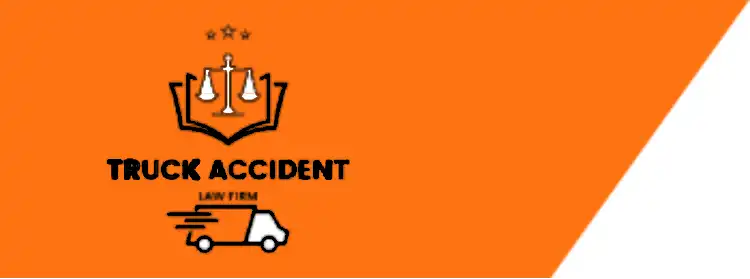A truck accident can result in severe injuries, extensive property damage, and significant financial loss. Dealing with the aftermath is never easy, and one of the most overwhelming tasks you’ll face is navigating the insurance claims process. Understanding how to handle your insurance claim after a truck accident is crucial to ensure you get the compensation you deserve for your injuries, damages, and losses.
In this blog, we’ll cover everything you need to know about filing an insurance claim after a truck accident. From understanding the role of insurance companies to knowing the challenges you may face, we’ll guide you through the process so you can make informed decisions.
1. Understanding the Insurance Companies Involved
Truck accidents often involve multiple parties, and understanding the different insurance policies that may apply is the first step in the claims process.
-
Trucking Company Insurance: Most truck drivers are employed by a trucking company, which typically carries commercial insurance coverage. This policy is often higher than personal car insurance because it needs to cover the risks associated with large commercial vehicles. However, insurance companies will work hard to minimize the settlement amount, so you’ll need to be prepared for a fight.
-
Driver’s Insurance: If the truck driver is an independent contractor, they may carry their own commercial vehicle insurance. In cases where the driver is at fault, their insurance could be used to cover your damages.
-
Your Own Insurance: If the other parties involved in the accident are uninsured or underinsured, your own insurance policy may help cover medical expenses, repairs, and other damages. Depending on your policy, your insurance could also cover things like medical bills through your personal injury protection (PIP) or uninsured motorist coverage.
It’s essential to determine which policies apply to your situation to ensure you file your claim with the right insurer.
2. Documenting the Accident and Your Damages
One of the most important steps in the claims process is documenting the accident thoroughly. The more evidence you can provide, the stronger your claim will be.
-
Accident Scene Evidence: Take photographs of the scene, including vehicle damage, tire marks, debris, and road conditions. Also, capture images of any injuries you sustained. The more detailed your documentation, the better it will support your claim.
-
Medical Records: Your injuries will likely be the biggest factor in your claim. Keep a detailed record of all medical visits, treatments, and any future care you may need. This information will be critical for proving the extent of your injuries and the associated costs.
-
Witness Statements: If there were any witnesses to the accident, ask for their contact information and a brief statement. Eyewitness testimony can be invaluable in establishing fault.
-
Repair Estimates: Get multiple estimates for the repair of your vehicle. These estimates can help ensure that the insurance company doesn’t undervalue your car’s damage.
By gathering all relevant evidence, you’ll make it much harder for the insurance company to dispute your claim.
3. The Role of Negligence in Truck Accident Claims
One of the key components of a truck accident claim is proving negligence. Negligence refers to the failure of the truck driver, trucking company, or another party to act with reasonable care, which leads to the accident.
-
Truck Driver Negligence: Common examples include speeding, driving under the influence, distracted driving, or failing to comply with federal safety regulations (like hours of service restrictions). If the driver violated these regulations, they could be held liable.
-
Trucking Company Negligence: Trucking companies are responsible for ensuring that their drivers are properly trained, their trucks are well-maintained, and they follow all legal guidelines. If the company failed to meet these standards, they could be liable for the accident.
-
Manufacturer Negligence: If a defect in the truck caused the accident (such as brake failure or tire blowouts), the manufacturer could be held liable for providing a defective product.
Establishing negligence is essential to proving fault in your claim and ensuring that the responsible party (or parties) are held accountable.
4. Dealing with Insurance Company Tactics
Insurance companies are in the business of minimizing payouts. After a truck accident, you can expect the insurer to try to settle the case quickly and for a low amount. Here are some common tactics they may use:
-
Lowball Offers: Insurance companies often make an initial offer that is far less than what you actually need. Their goal is to get you to settle quickly, before you fully understand the extent of your injuries or damages.
-
Denying Liability: Insurance adjusters may claim that you were partially at fault for the accident or that the evidence doesn’t support your claim. They may try to shift blame onto you to reduce their payout.
-
Delaying Your Claim: Insurance companies may drag their feet in processing your claim, hoping that you will become frustrated and accept a smaller settlement just to move on.
It’s essential to understand these tactics and work with an experienced truck accident lawyer who can help you fight for the compensation you deserve.
5. The Importance of Legal Representation
Navigating the insurance claims process after a truck accident can be complex and time-consuming. Having an experienced truck accident lawyer on your side can make a huge difference in the outcome of your claim.
-
Legal Knowledge: A lawyer will understand the intricacies of trucking laws, regulations, and how insurance companies operate. They will ensure that all deadlines are met, evidence is properly gathered, and your rights are protected throughout the process.
-
Negotiation Skills: A lawyer will negotiate directly with the insurance companies, helping you avoid lowball offers and ensuring you get the maximum compensation for your injuries, property damage, lost wages, and pain and suffering.
-
Litigation Support: If negotiations don’t result in a fair settlement, your lawyer can take your case to court. Their trial experience and knowledge will give you the best chance of securing a favorable outcome.
By working with an attorney, you can focus on your recovery while they handle the legal complexities of your case.
6. Potential Challenges in Your Insurance Claim
There are several challenges that can arise during the claims process. These include:
-
Underinsurance: If the truck driver’s insurance isn’t enough to cover your damages, you may need to rely on your own underinsured motorist coverage or pursue other liable parties.
-
Fault Disputes: The trucking company, driver, or insurance company may try to argue that you were partially at fault for the accident. In many states, even partial fault can reduce the amount of compensation you receive.
-
Medical Bills: Insurance companies may delay payments or dispute certain medical expenses. Having proper documentation and legal support can help you navigate these challenges.
Being aware of these potential obstacles will help you prepare for the claims process and work with your attorney to address them.
Conclusion:
Filing an insurance claim after a truck accident can be a complicated and frustrating process. However, by understanding the steps involved, gathering critical evidence, and having a skilled attorney on your side, you can maximize your chances of receiving the compensation you deserve. Navigating the claims process with legal support ensures that your rights are protected and that you can focus on recovering from the accident.

